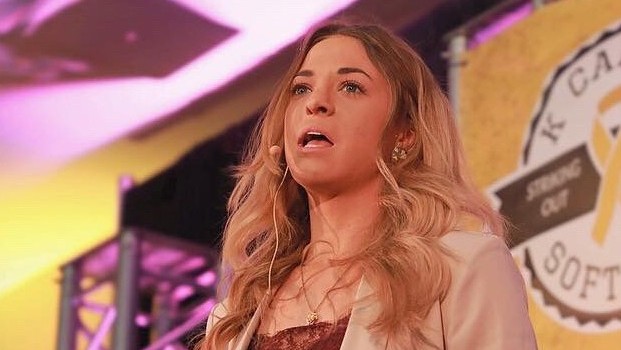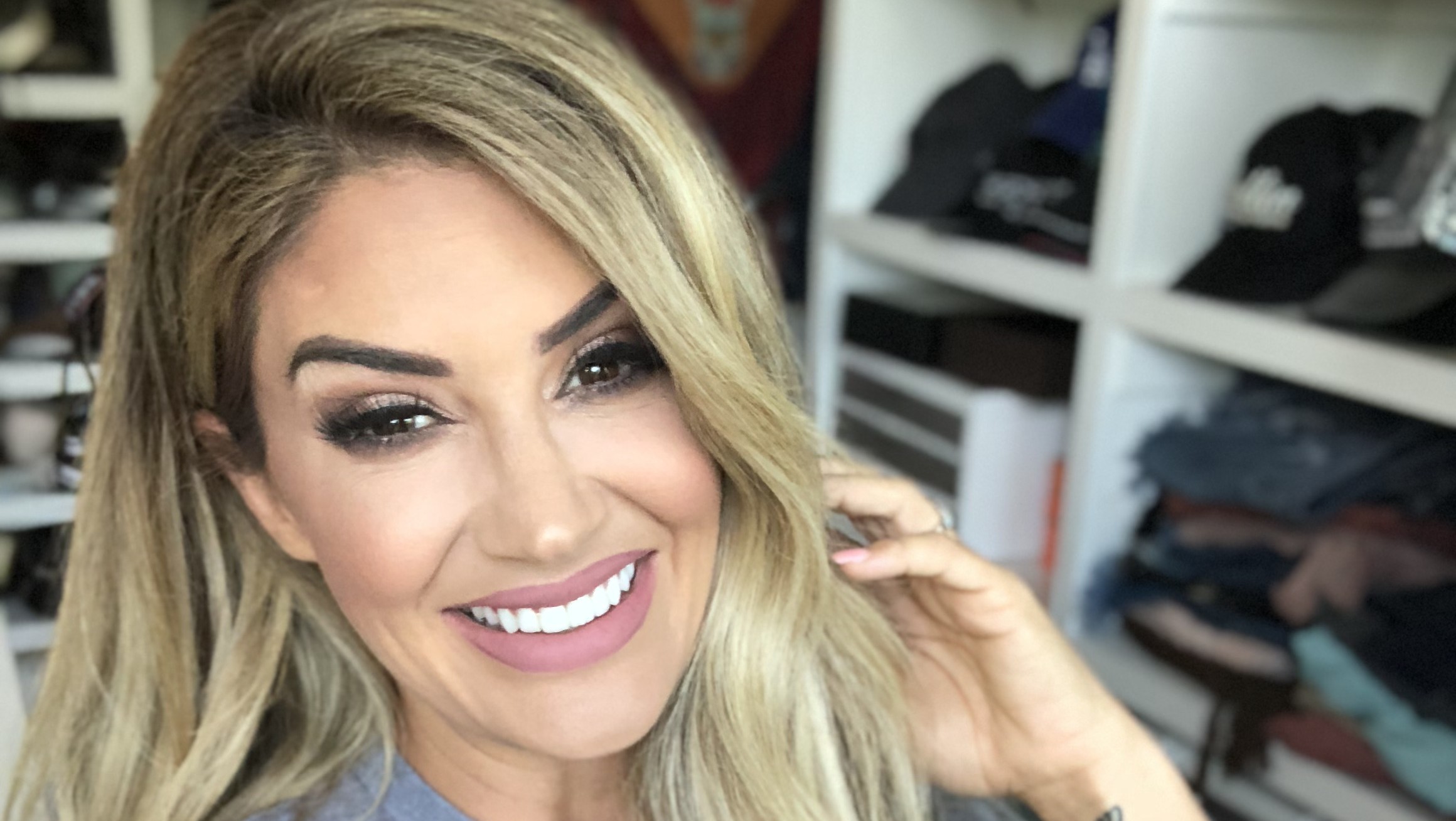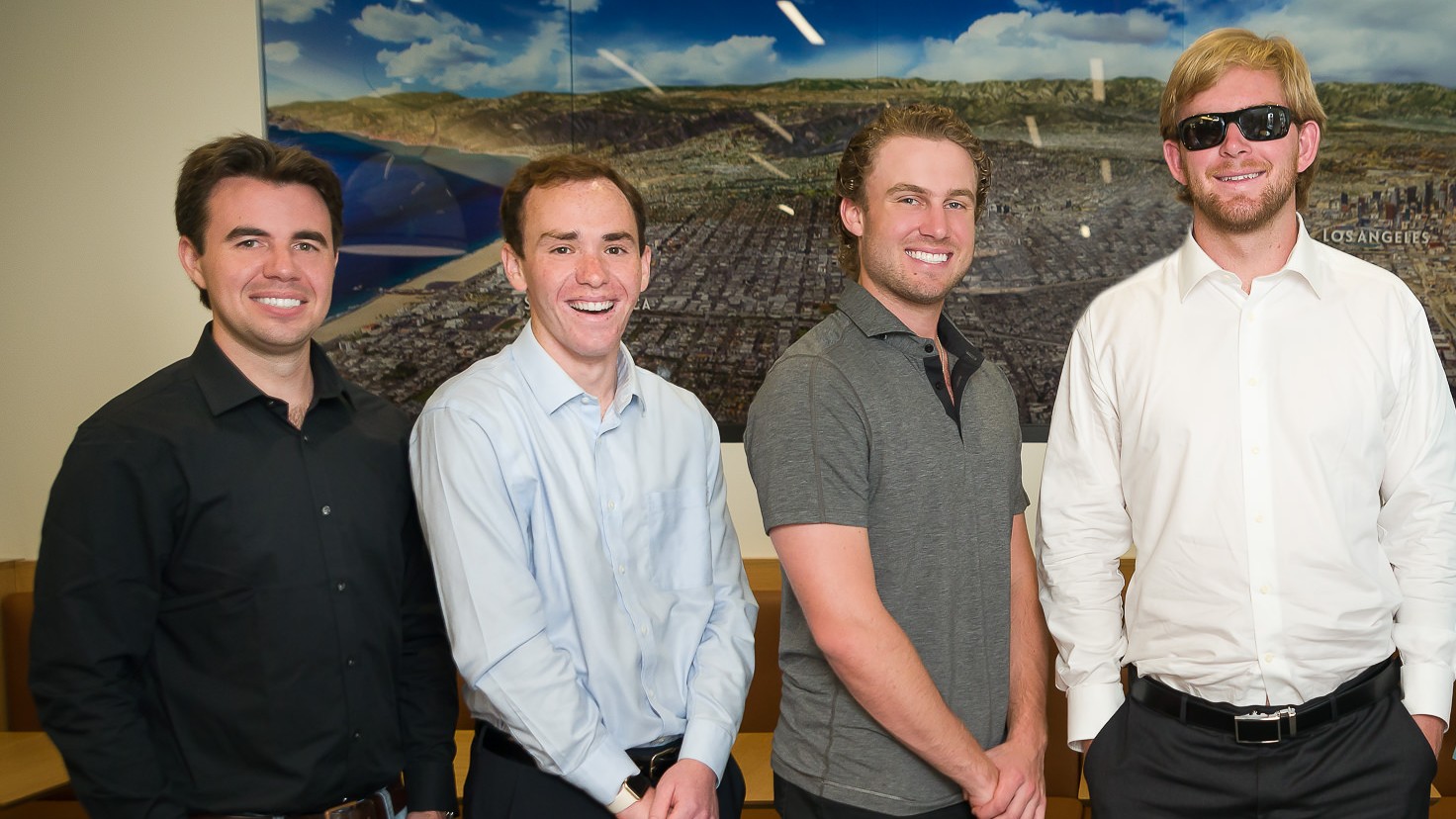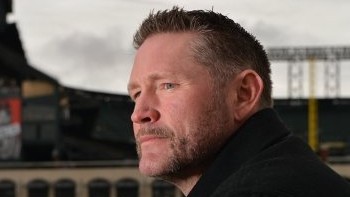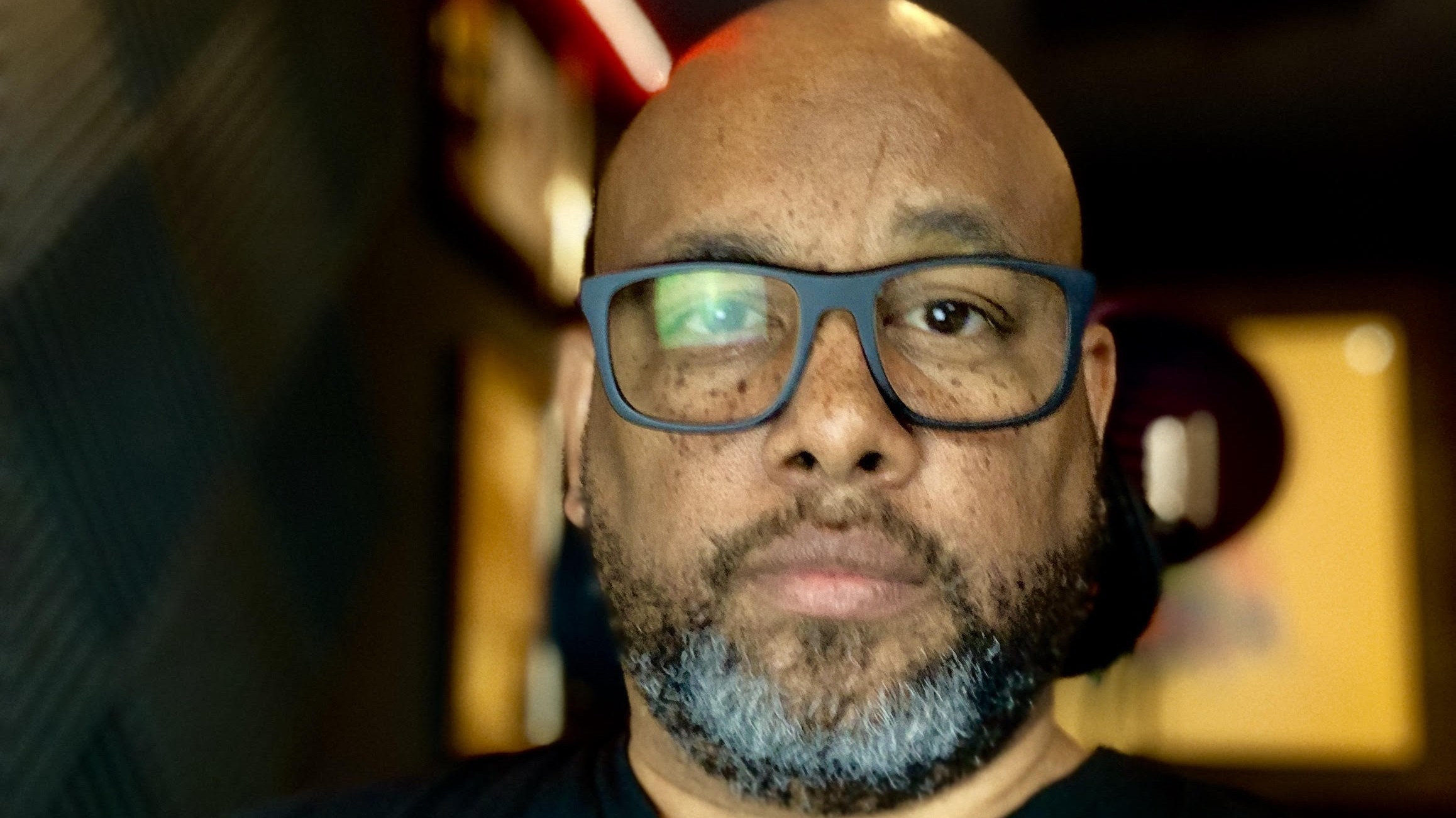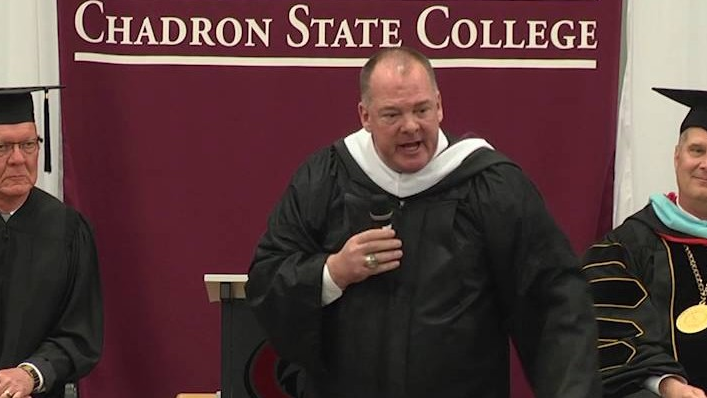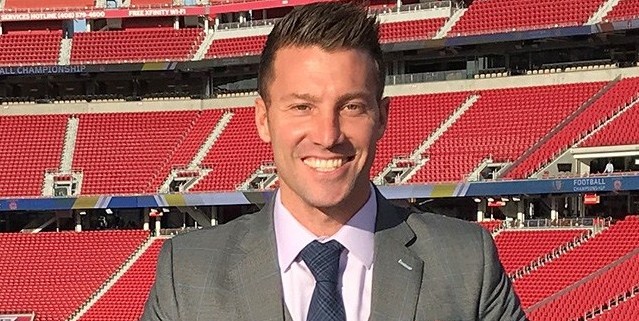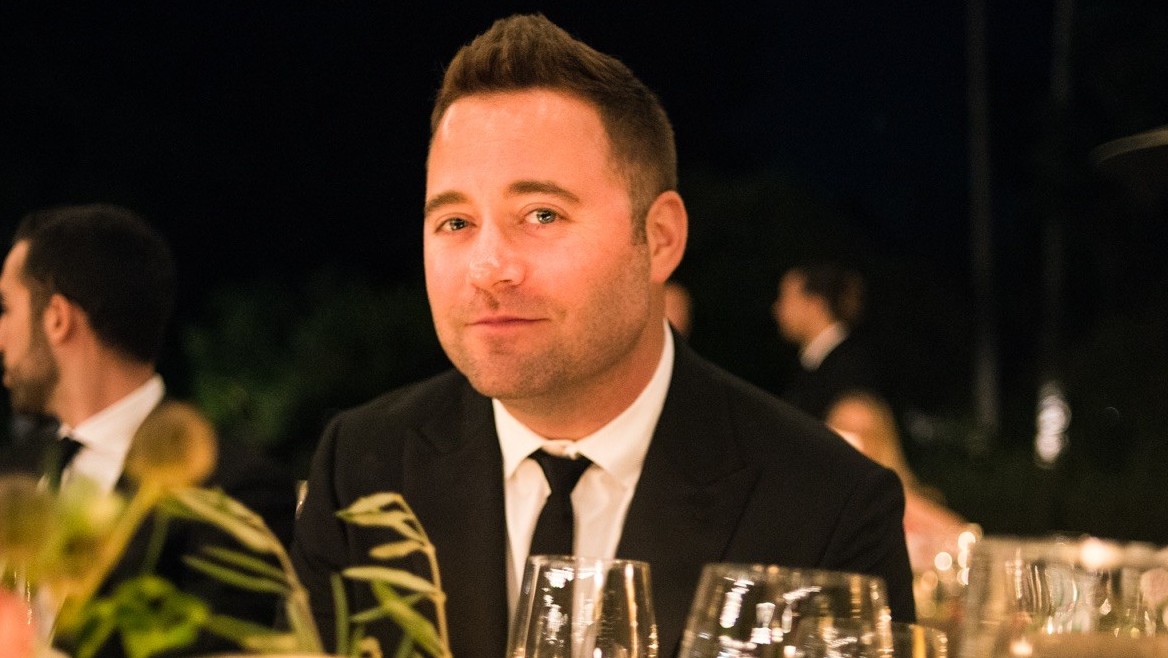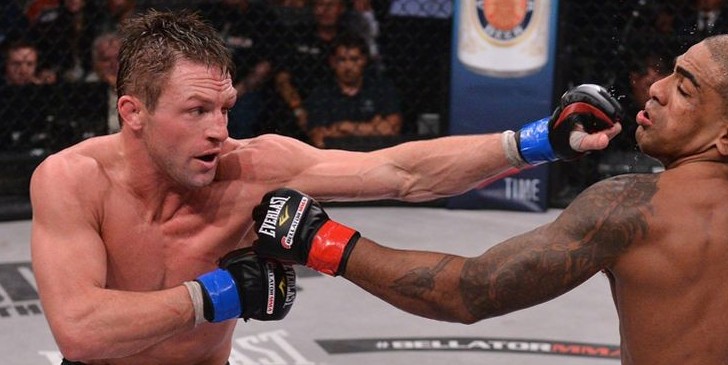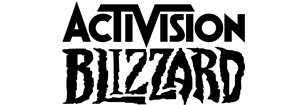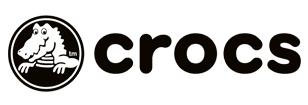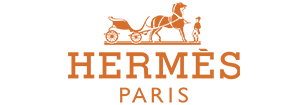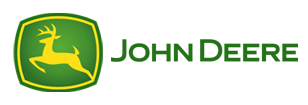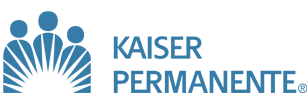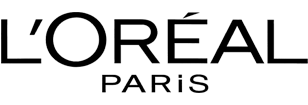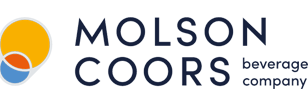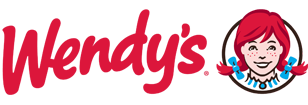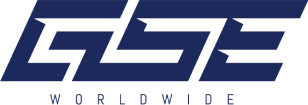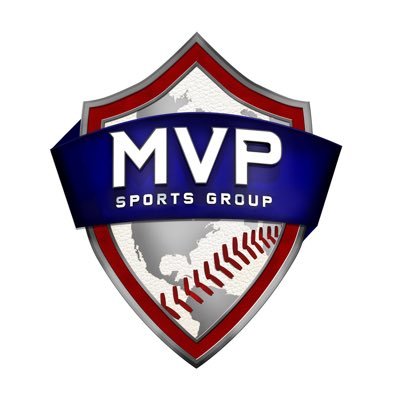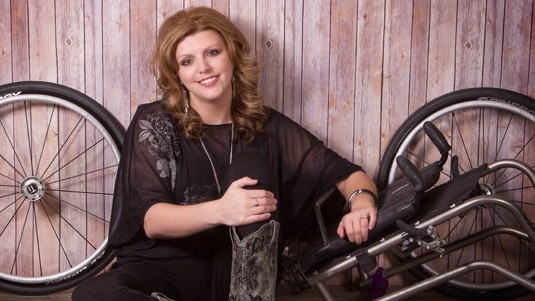
Episode 12 - Never Stop Exploring - Ashlee Lundvall
- By Brendan Egan
- May 01, 2019
In episode 12 of Let's Engage, Jake and Brendan engage with Ashlee Lundvall was an active teenager and four-sport athlete when she was injured in a ranching accident in 1999 while attending a youth camp in Wyoming. A tragic fall on to the wooden handle of a pitchfork blew out her back at T-12, resulting in a complete spinal cord injury and the introduction of a wheelchair to her life. After returning home to Indiana to finish her rehabilitation, Ashlee graduated from IUPUI in 2005 with a BS in Public Affairs, and completed her graduate studies in Biblical Counseling in 2007. In 2007, Ashlee moved to Wyoming with her husband, Russ. She quickly immersed herself in the amazing outdoor adventures provided by the mountainous region, and in 2008 helped found Wyoming Disabled Hunters. Besides hunting, Ashlee loves fly fishing, camping, four-wheeling, kayaking, hand cycling, and tearing around in her Action Track Chair. She also enjoys passing on her love for the outdoors to her daughter, Addison, who was born in 2010. Ashlee’s speaking career was reborn when she was crowned Ms. Wheelchair USA in 2013, and in 2015, she was given the Wyoming Trustee Award. Her first book, A Redefined Life, was released in February of 2016. She is a National Pro Staffer for Mossy Oak and a member of the NRA’s Disabled Shooting Sports and Outreach committees. Ashlee is also the recipient of the 2017 SCI Foundation Pathfinder Award. President Trump recently appointed her to the President’s Council on Sports, Fitness and Nutrition. Ashlee truly shines as a keynote speaker at outdoor industry and disability related events and conferences. She is passionate about mentoring newly injured patients, and loves to pass on her love for adapted outdoor recreation!
Listen along with Ashlee and for more information or to book her for a speaking engagement or experience, visit her profile on Engage.
--
Transcription:
Jake Olson: Welcome to another edition of Let's Engage. Thank you for joining us today. I'm your host, Jake Olson alongside my co-host Brendan Egan. We have our producer and our somewhat technician in the house as well with Daniel Hennes. Uh, we appreciate Ashlee Lundvall coming on today. Ashlee. I met her over the summer. Um, we are on the President's Council of Health, Sports and Fitness together. Uh, I was very intrigued when I heard her story we’re one of the only, um, I guess representatives of, of the disabled community on the President's council. So that was, that was an awesome title to share with her, but also just the, uh, what she does and how she does it is awesome. We'll get into that today. Actually though they start off. I, I'm, I'm really only afraid of two things in this world mostly. Uh, I have kind of two fears that will like kind of really stop me in my tracks sometimes and that is snakes, I hate snakes and I hate the woods. I think the woods, like hide things in them. I, I think anyone who is in the woods is, like running into someone deep in the woods, I think would be the scariest experience of my life. So my question to you is, you spend a lot of time in the woods, probably around snakes as well. So you've got me beat. But if you ever had like a really creepy experience in the woods?
Ashlee Lundvall: Um, I have a place. So what you're telling me, you're never going to come visit me in Wyoming and if you don't want to look
J: I just need to be with someone who knows what they're doing. So with you, I might feel safe, but I have you had a creepy experience in the woods?
A: Oh, absolutely. Anytime that were out hunting, and it's either really early in the morning or really late at night, and you know that there are things in the woods that are big enough to eat you, that it's always kind of a creepy experience. And so anytime that we're in the mountains and we're hunting, and there could be bears or wolves around, that's always kind of a creepy experience. But that's why you, you never go alone and you never go unprepared. But, um, we would try to take you somewhere, not quite as creepy as that if you came out, but you always have to be aware in Wyoming, that's for sure.
J: Absolutely. Like and bears and wolves. I, yeah, I mean that's just, that's just nature of, I mean, I, you know, there's all obviously all those stories of like other things that live in the woods. Like, have you, have you ever experienced something where you haven't recognized what an animal was or anything like that?
A: Um, I haven't personally done that at all. My husband has had quite a few rattlesnake encounters.
J: Oh boy.
A: He actually, at my daughter's birthday party a couple years ago, after all the kids left, we found about a three or four foot rattlesnake out on our driveway. Um, that was pretty, that was a little scary. Knowing all of the kids that just walked by. Yeah. But yeah, like I said, unfortunately there's a lot of things in Wyoming that could possibly could possibly get you. So you just have to be aware and all that.
J: Wyoming and and uh, Florida, right?
A: Yep. Yeah. We don't have gators here, so that's good
J: So where's your favorite, where's your favorite place you've ever hunted for or been outdoors? Is it a for I guess kind of the beauty of it or I guess the kind of a experience you had there. What like what was your favorite memory of when you were to outdoors?
A: One of my favorite memories of being outdoors actually happened, it's been almost two years ago now. I'm in, my husband and daughter were able to enjoy this with me, but we got to go to Namibia two years ago and I've been in a wheelchair for about 20 years now. And one of my biggest fears was that my disability was going to prevent me from traveling. I love to travel, love to explore new countries and cultures and meet people. And so I was really worried about that. And so I haven't done a lot of international traveling. Um, but was given the opportunity opportunity to go on a hunting safari in Namibia. And so getting to do that and not only have a great time, but like I said, but to share that with my family was something that I'll never forget. Definitely one of the prettiest places I've ever been. Obviously interacting with the wildlife there that we don't have here in the states was pretty amazing. And then the people were just so much fun and so much you were, they were so eager to teach us and we were able to learn from them. So definitely one of my top, um, outdoor experiences was going to Namibia.
J: All right. So you said you were in a wheelchair. Tell, tell us kind of like exactly, you know, growing up, what happened, right.
A: I grew up, actually in a little town right outside of Indianapolis and was very tall from an early age and loved to be outdoors, loved to be active and loved to play sports. And so went from really year round sports. So I'd start out in the fall, playing volleyball, and then I'd go into basketball and then fast pitch softball. And in the summers were slow pitch softball and I would start all over again. So it was literally all year round. Um, but loved to be outdoors, loved to be active in sports and heard about an opportunity to go to a camp in Wyoming. And I was a big horse lover and loved it. Everything about the west, and had been on a family vacation there when I was about 12 or 13. And so really was excited about that opportunity. And so I came out for the first time as a camper in 1998 and then came back to the same ranch in 1999 as a camper and really camping in Wyoming. Just kind of like free child labor. Like they get all these kids out here looking at the ranch and they really put you to work. And so we were on a working ranch and had to take care of all the animals and just tend to everything like that. But, um, we were looking forward to a big backpack trip and so I woke up on, it was a Monday morning, August 2nd of 1999 so it'll be 20 years this year. And I had some chores that I had to take care of before we left on that big backpack trip. And so went down to the lower corrals from the bunk house and I had some steers and horses there that I had to feed and take care of. And so I climbed up on a hay rack, which is kinda just like a big log table that keeps the hay off the ground so the animals can't get to it. And I climbed up on top of that, opened a bale of hay and part of that hay fell off to the side. And so I grabbed the pitchfork I had been using and leaned over to get that piece of hay. And when I did, I lost my balance and started to fall. And the last thing I remember thinking was throw the pitchfork. Um, unfortunately when I came to a few minutes later, I had actually landed crossways on the wooden handle of that pitchfork. And so ended up breaking my back at the t-12 vertebrae and severely damaging my spinal cord. And so that is what led to my paralysis. And then like I said, have been in a wheelchair now for about 20 years. And so I've officially been in my wheelchair longer than I was out of it. Um, I hit my head pretty hard on the way down, so I have a minor, had a minor traumatic brain brain injury and watched a lot of those memories from being able bodied. So I don't really remember what it's like to walk around and be tall and things like that. So that made it a little easier to adapt to the chair. But it was definitely the most challenging thing that I've ever dealt with and is really, um, affected my life obviously in the last 20 years.
J: So how was that right after? I mean, what, what growing up outdoors, obviously you said you love the outdoors. How was that, where was that your first fear of like, how am I going to do this? Or like what, what is, what is the first fear is like when, when waking up with that reality?
A: Um, I still remember the doctor's coming in. It was the first week, um, obviously had a lot of surgeries to repair my back and my spinal cord, but I remember the doctors coming in and telling me that I wasn't ever going to walk again. And it wasn't necessarily the walking that, that, you know, it felt like such a loss. It was just the activity level that I was used to. And I assume like a lot of people do that if you have some type of physical disability that automatically means that you're either going to be indoors for the rest of your life or that you will have kind of a nonactive lifestyle. And so I believe that, um, I didn't really have a whole lot of people to tell me any differently other than my parents just saying, you know, there, there are really no rules. Now let's just kind of make this up as we go. And I'm so thankful for that attitude because it really taught me early on, you know, my parents never pitied me, my family never let me use excuses for my disability. They just said, you know what, at the end of the day, if you still have the same dreams and goals, just going to adapt and make those still possible. And so I think because we didn't really have a rule book or a guidebook or anyone telling us what to do, we had the freedom and just kind of make things up as we went. And so I think that I'm probably more active now as a person with a disability and I ever would have been as an able bodied person just because number one, I know what it's like to have that taken away and have that fear. But number two, I never was given the opportunity to use my disability as an excuse to not be active. And so that's kind of my life's mission now is just to help other people specifically those with disabilities realize that you know, your disability doesn't have to define your activity level. And does it have to define, you know, what you are capable of. You just have to be, you know, maybe a little bit more creative and, and be willing to adapt and you're still able to maintain incredibly active and healthy lifestyle. And so even though I had that fear, um, I'm very thankful for the support that I have to overcome that fear. And you really just break those barriers down that other people would have very easily, I think, put up in my way. And I probably would have believed had I not just had the opportunity to just go out and do whatever I wanted to. And so that was probably my biggest fear and so thankful now, 20 years later that I don't, um, have to deal with that and I can help other people overcome that fear as well.
J: Absolutely. No, I love that. I mean, you know, that's the, that's the thing I tried to hit on too, that there's a will, there's a way and you know, it's not always the easiest way and yet you have to adapt. You have to find kind of your, your new way of, of playing golf in my case or playing football, in your case, you know, being outdoors and doing the things you love and for anyone, anyone specific, you know, it's just whatever they do love, they got figure out what to do. And so I absolutely love that. But where, so you said you're, you're obviously, you know, my parents at the same way. They, especially my twin sister growing up with her, didn't ever let me, have pity whether myself or find excuse, you know, she, she, she always just expect the best from me and you know, and sometimes it was hard but you know, I appreciate at the end of the day, but that mindset kind of come from your parents or like what was, what really gave you that kind of optimistic view of, of it's going to be okay, I'm going to find a way to do this, kind of that stubbornness to keep, keep going and, and, and to find a different way.
A: But it was probably two fold. Um, one, my faith is really important to me. And so understanding that, you know, I believe I always had believed that things happen for a reason, but I was only 16 when my accident happened. So I hadn't really gone through, hadn't really gone through anything in my life that made me question that. Um, and so having that kind of foundation in place that yes, this was going to be a traumatic experience and yes, it was going to change everything, but that God was still able to use that in my life. And then he still had a plan, was really, really important to me and still is. Um, but like I mentioned earlier, having that support of my family and having them, you know, they, they had shaped so much of my life up to that point in my personality and who I was. But like you mentioned with your family, they just never gave it a second thought about, you know, making sure that they didn't pity me, making sure that they didn't let me, you know, while they let me grieve my loss, they didn't let me kind of wallow in it and they didn't let it become the blue. This defining, you know, thing about my life, you know, if this is what you want and you want these dreams and these goals, we're going to help you achieve them just like they would have before my accident. And so I think having that support system in place, um, like I said, the foundation of my faith, but then my family just being there to support me really made all the difference in the world. I don't know how people, you know, go through hard times or deal with tragedy without those support systems in place because I know there's really key in my life and I think a lot of my personality before, you know, I've always been stubborn and I've always been someone who refused to quit, but it was definitely honed a lot more through my accident and it definitely brought those features out in me, um, where I don't think necessarily they would have come to the forefront if it hadn't happened. And so my mom always told me that being stubborn is not a bad thing and that you can take that stubbornness and really kind of craft it in such a way that it's gonna, it's gonna to be a good thing in life and not be thought of as a negative trait. And so I tell people that all the time, you know, don't let anyone insult you by telling you that you're stubborn because that's really what can get you through sometimes.
J: Absolutely. Hi, my friends tell me that all the time. Right Daniel?
Daniel Hennes: Too much. You have empowered a dangerous mindset from Jake.
J: Hahaha, so as you tell us, like some of the things that you have, you know, adapted you, like what? So when you were out there and caught up in that terrain and the other equipment you're working with, what kind of tricks have you learned that you can go out there and do some amazing things?
A: Obviously living here in Wyoming. We live in northwest Wyoming, so we're right at the east entrance to Yellowstone national park and we're in what's called the big horn basin. So we're literally surrounded 360 degrees by mountains. And so just getting out and sometimes going to get my mail can be almost like an obstacle course just because of the rough terrain that we have here and everything that you kind of have to work around. So people just assume, you know, if you're in a wheelchair and you live in Wyoming, you must not get out very often. And it's really the opposite. It's challenged me to, to be really creative, but it's really turned me into what I call a gearhead too, adaptive equipment is something that I'm incredibly passionate about. It gets me really excited and gets me, I'm eager to learn as much as I can about it so that I can help other people learn what adaptive equipment helps them. And so I have a few key pieces that I are literally probably would not be able to function without. Um, the first is my action track chair. Um, if you are familiar with those are all, they're kind of like, um, an electric wheelchair. It almost looks like a tank. They have paint tread looking things on the side of them. And so that gets me into places that I never could have gotten in my manual wheelchair. Um, before I was able to purchase that piece of equipment. My very sweet husband use the haul me all over the place. I'm kind of like a dais, which worked really well when we were both a little bit younger. But, um, I always had this fear that him hauling me around was gonna hurt him physically or he was gonna, you know, hurt himself and then we'd both be in a pickle. So getting that action tractor has been huge. Um, and it actually is interesting because specifically when we go hunting, I'm so used to people wanting to help me. And now that I have that action track chair, I can haul equipment, I can pull animals back to the truck, I can do all these things now that makes it, so I don’t need help at all, which is really neat. And um, you know, you're so used to, and you have a disability, you're so used to everyone else always helping you. Right. And so kind of flipping that on its head. It's been a lot of fun. And then I'm really like, I love my, any of my hunting equipment or you know, my hand cycle, I get to go ride bikes with my little girl with that. Um, really anything that we do, I have tried to find a way to either get really creative and come up with something to make it adaptive or just doing my research and having relationships with companies that make adaptive equipment has been something that I think has been a real game changer, especially living in Wyoming.
J: That's very cool. That's really cool. Uh, Brendan, do you, do you have any input?
Brendan Egan: Ashlee, I'm blown away by it. I, as somebody who loves the outdoors as well and loves hunting and fishing a, you know, makes me just absolutely amazed that, that you're able to keep at it and stay as active as you do. What's a, take us through some of your favorite favorite spots, uh, where, where the, uh, uh, first of all, hunting or fishing, which one do you prefer and where were some of your favorite places out in Wyoming? To go do it in your backyard.
A: I am definitely a hunter before I am a Fisher woman and I'm really, the reason for that is, um, I used to just go fishing. My husband is a fly fisherman and he used to go with his grandfather quite a bit who was just master fly fisherman, and built poles for all the grandkids and for everyone. And I would go with them literally just to watch them fly fish. If you've ever obviously seen someone do that or been around anyone fly fishing, it really is an art and it's just a beautiful thing to watch. Um, unfortunately my husband's grandfather passed away about four years ago and so I started fly fishing with my husband just to give him another partner. Um, learned a couple things doing that. Number one, your spouse should never teach you anything. Um, maybe not the best idea because that was I think really frustrating to both of us. And, and so while I enjoy going with him, I found out, you know, your spouse should not be your teacher and things like that, but we have a good time going together. A lot of times I ended up stopping and just watching him because my husband has grown up fly fishing and so he really does it effortlessly and it just is something he does very naturally. And I'm still a little awkward when I fly fish. And obviously being in my chair makes things a little bit different how I do that as well. And so I definitely would rather hunt than fly fish. But, um, we're very fortunate that within an hour or so we can be up into about three different mountain ranges. And there's one area and that's really special to our family. It's called Sunlight valley and it's about an hour from where we live. And both of my husband's grandparents have cabins up there. And so he grew up there. And when we were dating, he would take me up there and we'd go hunting. And fishing and four wheeling. And anytime that we have anyone come and visit us, that's usually where we will take them up into Sunlight. It's kind of an area where more locals are than tourists. And so it's kind of a special area that we're able to go to. And we have a lot of great memories up in sunlight.
B: I always ask, Ashlee, you hear the phrase confined to a wheelchair, right? And that word confined, has such a negative connotation to it. Um, I, I know some people, I have some friends that are, that are in wheelchairs and you know, I think it changes, you know, obviously it changes your mindset and, and there's just this, I don't know why, but there's this overwhelming negative connotation to it. Um, how do you know, how do you help people overcome that? What do you tell them? How do, how do you break that mindset and take things one step at a time to getting outside more, to going to get the mail, to eventually doing things that you do, hunting, fishing, doing things that you love. And as you even mentioned doing it maybe more than you did before your accident, how do you, how do you break that negative connotation of the word confined and, and get over that?
A: Exactly. You're right. Um, I, I try to emphasize to people how important it is when they communicate, whether they're talking about a person with a disability or talking to a person with a disability that your words really do matter and they do have a lot of impact. I try not to get so hung up on, on verbiage that it affects my relationship with people. But at the same time, I do use it as an opportunity to educate people, you're right, a lot of the kind of dated terms, um, in any really anything to do about verbalizing a disability have always had that negative connotation. And so I always try to catch people when they say things, things like that. When they say confined to a wheelchair or you know, I still have people that will use the word retarded or they'll say handicapped or they'll come up with all these kind of what I consider to be very dated words. And so I always try to use it as an opportunity to not, you know, make people feel bad, but just to educate them. A lot of times it's just people in their ignorance don't understand how, you know, upsetting to some people or what a negative connotation, some of those words do you have. And so I try to use that as a way to educate people, but a lot of times I just have to show people. Um, I, I used to wear a tee shirt that said, just ask. And it kind of had the handicap symbol on it, the disability symbol. And it really just encouraged people that if they had questions to just ask me or if they thought I needed help about something, that it was fine to ask. But then to understand how incredibly important someone independence is and how sometimes, you know, you helping me might make you feel better, but you're actually making it worse for me. And so again, that education I think is so important in constantly helping people understand people with disabilities, how to communicate, how to interact with them. But a lot of times I just have to do stuff to get people to believe me. Um, people don't understand, you know, that I'm able to drive and I'm able to travel across the world by myself and I'm able to get out and do it with all these things until they actually see you do it. And then they finally believe or they understand better about maybe how it's done. And so I'm a huge, huge proponent of educating people. And I think the manner in which you do that is really important because you can turn people off. But most people that I talk to were very open and they want to learn. And it wasn't that they were trying to make it harder or they were trying to, you know, be negative. They just didn't know. And so I think educating people is incredibly important, but it also is very helpful to have a good sense of humor. Um, I think anytime that you go through something similar to, you know, what Jake and I live with, you kind of develop maybe a little bit of a twisted sense of humor. Um, I think that you develop it originally as a coping mechanism and then eventually it kind of helps other people be more comfortable around you and around your disability. And so I tried to find ways to put humor into that education, just to let people know that they can loosen up, breaks the ice, makes them a little bit more comfortable, and then it kind of makes those educational lessons that we have more memorable and then hopefully the next person with a disability that they encounter, they're able to take that education and take that humor and then make that easier for the next person. So those are probably two of the biggest things that I try to work on when I interact with people.
B: No, that totally makes sense. And I, um, I remember when I first met Jake, you know, being blind. I, you know, I think people just naturally, it's, it's, it's not that, you know, they mean wrong or that they're coming from a bad place. I mean, most people I think are really good people and they're coming from the right spot. They just, you know, it's, it's an uncomfortable different experience for them and they don't really know how to interact or what to do or what to say or, you know, they're overly worried about what's proper. And, you know, I remember Jake cracked a joke and really broke the ice and just use humor and I can see a lot of similarities between the two of you, just, just even chatting with you for 15 minutes here. It's, uh, it's, it's really amazing and it's awesome that you both do do what you do it.
J: Daniel, Daniel never had those hesitations with the verbiage, that's for sure.
B: Daniel is just not right. So, I mean, we don't have to worry about him. So Ashlee, obviously you love going talking to people. Um, is that, is that kind of helped you through this? Cause I know obviously going and speaking at helping others as, as is really a blessing, a daily blessings in my and in my life.
A: Yeah. Have you had told me 20 years ago that, you know, first of all, every good thing in my life would be a direct result of my accident happening, but also just how much of my life right now, um, is really been redefined by that accident. And you know, I used to think of my disability as something that I was always trying to maybe avoid or not think about in those first couple of years when I was still coming to terms with everything. It was, I tried to separate myself from it and I never really embraced it. And then once I learned that, you know, if I embrace my disability and allowed it to kind of work for me instead of work against me, that naked influence in a positive way, every aspect of my life. And that's really what's happened kind of on the business side of things is I feel like everything that I do now for work, quote unquote relates to my disability and it's, it's really exciting for me and very empowering to know that I can take something that a lot of people look at as a negative thing and use it in such a positive way. Um, that, like I said, all the good things right now. Um, and for the past 20 years in my life that I have and enjoy are a direct result of that accident happening. And so it's just, it, it makes me feel better to know that, you know, when my accident happened within the spinal cord community, there's only about 20% of us that are female and to find a female that also is in a wheelchair that is active like I am, is pretty rare. And so I didn't have anyone to talk to. I didn't have anyone to ask questions to. I got married and started a family and went to college and did all these things without having anyone to talk to. So knowing that I can be that for someone else is really, really special. Um, there's just something really powerful about looking someone in the eye and saying, I know what you're going through and actually meaning it. Um, that is just, it's so much fun to be able to go into, you know, hospitals and Rehab places and talk with people in and let them know, you know, I'm 20 years out from my accident happening and told them about what my life has been like. And really just try to give them as much hope as possible to know that yes, your life's going to look different, but it can be an amazing life. And I think that I really appreciated having someone like that when my accident happened. So knowing I can be that for someone else is really encouraging to me and it kind of makes the last 20 years a lot more worth it to know that all the struggles and the lessons that I've learned along the way can now be used to help other people. It just doesn't get a whole lot better than that. And so I'm just very blessed that I get to do that kind of for a job. I don't think of it as a job, but, um, it's kind of a ministry that I'm able to have now that is a lot of fun and very exciting and lets me meet a lot of really amazing people. And so, um, yeah, that's kind of one of the perks of it is getting ready, getting, you know, being able to turn around and help other people as they start their journeys.
J: Absolutely. That is awesome. That was really, really awesome. Um, last question, little fun question. Just best catch. Biggest catch, best catch. What, what would you say your best catch is?
A: Uh, definitely best catch would be the very first bull elk that I ever got. And I will say that because it is bigger than my husband's bull elk, um, we're a little competitive, so anytime we go out hunting or anything like that, um, he's actually got a couple and the very first one I ever got was bigger than the ones he'd ever gotten. So, of course that was a lot of fun and very competitive.
J: What was the weight?
A: Oh weight, I think bull elk, um, with rack and everything, they can be upwards of, you know, over 800 pounds. And so we obviously we eat everything we hunt. And so we were able to eat off of that bull elk for almost three years. I didn't buy red meat.
J: Oh my gosh.
A: There's so much more meat on than people realize. But um, obviously Africa was amazing too. I literally just got a crate delivered last week that had all of my trophies in Africa. And so we were able to not only get to learn a lot about the culture and the people there, but we were able to try all the different animals that we were hunting. Things that you wouldn't think about that people eat there. You know, we think of them as, and zoos and things like that. And so everything that I was able to hunt in Africa is, is always going to be a special memory for me. It, Huh.
J: Well that is awesome. Well, Ashlee, I just want to thank you so much for coming onto the podcast today, man. It's a blast talking to you and for anyone who would like to hear Ashlee and an experience a talk with her or anything of the like, you can visit www.letsengage.com. As you can see, she has an amazing and inspiring story. Uh, she is a fierce woman and a woman that won't be stopped in life, which I just absolutely love and admire. So we thank you again, Ashlee, for coming on and again to book Ashlee or, or any other of our talent. Just please visit www.letsengage.com and we thank you for listening to us today and we look forward to the next podcast. Thank you for joining the Let's Engage podcast.

